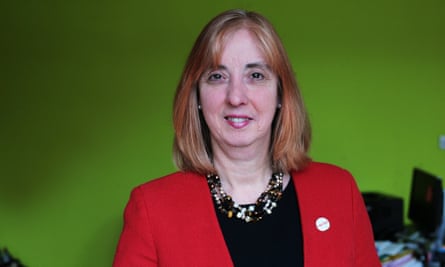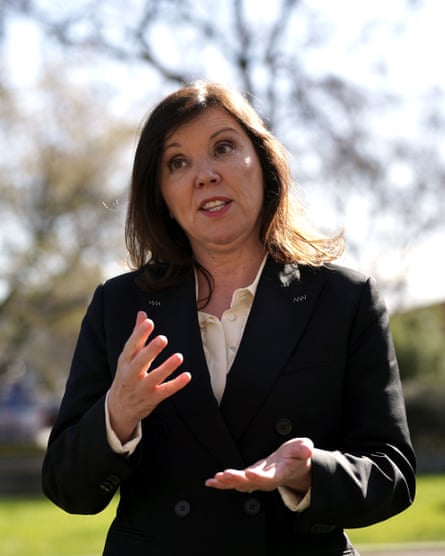Councils are treating teenagers like homeless adults and placing them in unsuitable temporary housing rather than taking them into care, new research has shown.
Local authorities are “waiting out the clock” when assessing vulnerable 16- and 17-year-olds until they can be classed as adults. The teenagers were kept in the dark about their rights after escaping “harrowing” family situations involving physical and emotional abuse, addiction and mental health problems, according to research by the Coram Institute for Children charity.
The charity said that cash-strapped councils often failed to house these children at all, or treated them like adults requiring housing, knowing that once they turned 18 the council would have fewer obligations to support them if they weren’t classed as care leavers.
The findings are based on accounts from young people across the country and have been shared exclusively with the Observer.
Coram first reported on this practice a decade ago, and this weekend warned that although councils now knew they were breaking statutory guidance, little had changed.
Dr Carol Homden, CEO of Coram, said: “Vulnerable 16- and 17-year-olds who become homeless are almost always fleeing abuse and family breakdown. They not only need a roof over their head but the care and support that is their right.”
The children’s commissioner, Rachel de Souza, has argued that children forced to leave home should be seen as in need of care and not “homeless”. A study by her office last year found that, in 2022-23, about 6,500 teenagers aged 16 and 17 presented as homeless, and predicted that the real number was actually much higher. Coram is calling for ongoing collection of this data, and figures on how many are then taken into care.

Coram successfully fought for one local authority to support Mina*, who had to leave her family home at 17 due to physical and emotional abuse. With nowhere to live, Mina approached her local authority asking for support but they turned her down. She told the Observer that a worried teacher emailed a friend’s parents asking if they could help, and she ended up “sofa surfing” between houses while trying to study for her A-levels. Mina had no money and was reliant on friends’ families for food and to borrow clothes.
“I was so upset. My friends were really nice, but I knew I couldn’t stay with them for ever,” she said. “The holidays were coming up and I knew people were going away.”
Mina said she felt frustrated and sad that she had “tried so hard” to escape her family situation, only to find there was no support to fall back on and she was alone. “I thought: if I’d come out earlier when the abuse was worse, would they have taken me more seriously?”
Worried that her mental health was deteriorating, Mina’s school made an urgent referral to social services, but for a second time the council failed to take her into care.
after newsletter promotion

A concerned social worker referred her to Coram, who gave her an advocate to help her understand her rights. She worked with a solicitor to push the council to follow its duties and take her into care, and was then able to access financial help, support with her education and safe accommodation. She is now at university but said she worried about other homeless 16- and 17-year-olds. “What about children who don’t have friends with spare rooms? What if they feel they have to stay in an unsafe home or sleep rough?” she said.
Sadie* was placed in a homeless hostel at 17 by a different local authority, and ended up living there for four years. Sadie’s mother died when she was 10, and with no support from social services, her relationship with her aunt, with whom she lived, broke down and she was forced to leave.
Coram’s research found that many young people felt that, with earlier intervention and support, their family breakdown might have been avoided, meaning that fewer 16- and 17-year-olds would end up with nowhere to live and need to be taken into care.
Sadie told the Observer that being put in a hostel was “nerve-racking, but I was just glad I had somewhere to stay”. However, Coram said that until they were put in touch with Sadie, she had no idea of her rights, and didn’t understand that if she was taken into care she would be entitled to wider-reaching support until she was 25. With no support once she was deemed to have settled into her hostel, Sadie got into debt while studying, having to choose each month between paying her energy bills, buying food and paying council tax, as she couldn’t afford all three.
Sadie was eventually tipped off by a key worker after four years at the hostel that she should have received more support. Coram said the key worker asked Sadie not to tell the housing manager that she had revealed this in case she got into trouble. The charity helped Sadie, who is now 23, to apply retrospectively to be taken into care.
Sadie said: “I feel annoyed for my younger self because of all I went through to survive. To councils, we might just seem like a number, but this is somebody’s life, and we never know the state of somebody’s mental health or what they are strong enough to face.”
A spokesperson for the Department of Education said: “After inheriting a broken care system, we are delivering meaningful reform and investment. The children’s wellbeing and schools bill will put children’s futures at the centre of rebuilding public services, requiring higher standards for children in care and care leavers.”
* Names have been changed to protect identities
Source: theguardian.com


















